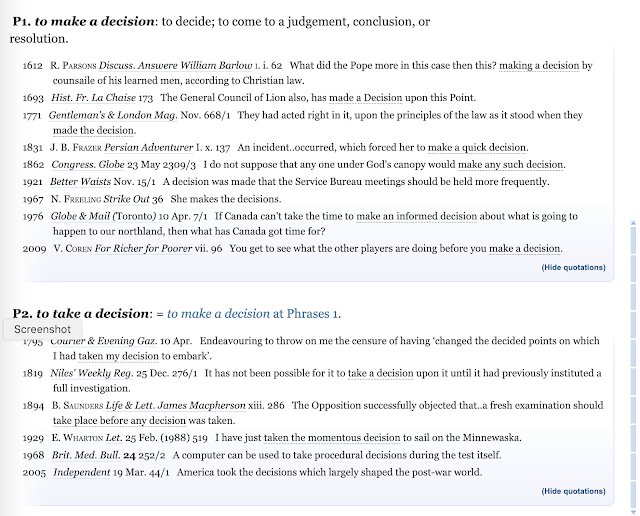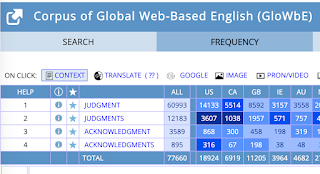Can you tell me why some people make decisions and others take them?
The reason, of course, is that some people speak some dialects and other people speak other dialects. AmE speakers generally make decisions and BrE speakers can also take decisions.
Make and take in these contexts are light verbs. Light verb is defined by the Lexicon of Linguistics as "thematically incomplete verb which only in combination with a predicative complement qualifies as a predicate". In other languages, this usually means a fairly semantically-empty verb that occurs with another verb in a sort of compound-verb (Japanese and Korean have lots of these). In English, the term usually refers to verbs that add very little to the sentence but occur with nouns (usually) that have been derived from verbs. So, in this example's case, one could decide with a regular old verb, or make/take a decision with a light verb plus a nominali{s/z}ation of the verb decide: decision.
In popular discussions of language, there's a tendency for people to perceive phrases that one group says and the other doesn't as the British way versus the American way. But English gives us lots of ways to say lots of things, and the number of ways that one group has doesn't have to be the same number of ways as another group has. That's the case here. British has more light verb variation with the word decision than AmE has.
- There's been more make than take since the 1930s.
- In 'the most take' decades (1960s onward), take is playing second fiddle to make.
- If there's AmE influence, it's happening well before mass media.
- There might be a different pattern emerging for making a decision versus taking the decision. Maybe taking feels more definite than making. After all, things come into existence through making. We take things that are already known to exist.
So there's what I've been looking at recently!














